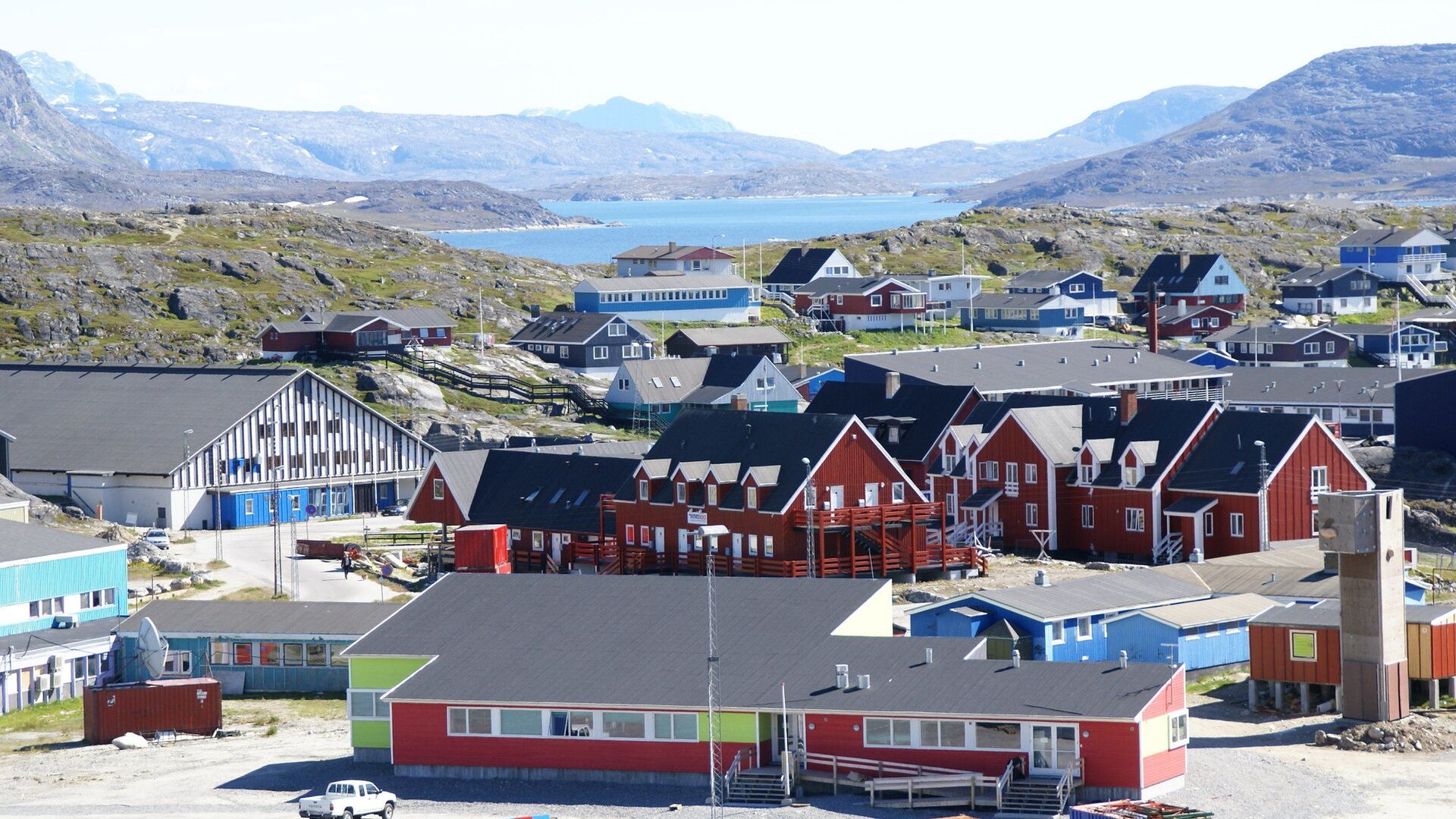https://sputnikglobe.com/20210929/greenland-foreign-minister-fired-over-proposing-inuit-only-independence-referendum-1089507458.html
Greenland Foreign Minister Fired Over Proposing Inuit-Only Independence Referendum
Greenland Foreign Minister Fired Over Proposing Inuit-Only Independence Referendum
Sputnik International
Despite its hopes for independence, barren, sparsely-populated and semi-autonomous Greenland remains largely dependent on Denmark's annual locked subsidies of... 29.09.2021, Sputnik International
2021-09-29T07:52+0000
2021-09-29T07:52+0000
2021-09-29T07:52+0000
denmark
greenland
newsfeed
europe
independence
https://cdn1.img.sputnikglobe.com/img/07e5/05/15/1082956037_0:107:2048:1259_1920x0_80_0_0_e0aa371183a87b1299a2225038e5dce6.jpg
Greenland's pro-independence Foreign Minister Pele Broberg has been fired after saying that only Inuits should vote in a referendum on whether the vast Arctic territory should break away from the Danish Realm, of which it is currently part.In an interview with the Danish newspaper Berlingske, Broberg of the national-conservative party Naleraq said he wanted to reserve voting in any future independence referendum for Inuits alone, who comprise more than 90 percent of Greenland’s population of 56,000.In the same interview he opposed to the oft-used term the “Community of the Kingdom”, which is yet another formal designation of the Danish Realm that includes Denmark, the Faroe Islands and Greenland, suggesting that his island had “little to do” with Denmark.Greenland, the world's largest island, was a Danish colony until 1953 and became a semi-autonomous territory after gaining home rule in 1979. Since then, voices for full independence have been heard, including from several pro-independence parties.The prospects of independence have been bolstered by its geostrategic location in the Arctic, as well as massive mineral reserves, whose extraction has been hampered by a lack of infrastructure. Greenland's rising attractiveness prompted a somewhat unexpected offer from former US President Donald Trump to buy Greenland, which led to a firm rebuttal from Copenhagen.However, the natural reserves-fuelled independence movement remains a delicate question for the ruling coalition, which ran on a platform opposed to a massive uranium mining project.In response to Broberg's proposal, Greenlandic Prime Minister Mute Egede, who supports the island's autonomy but not independence, underscored that “all citizens in Greenland have equal rights”. He also said that the ruling coalition had agreed to reshuffle the cabinet following the new controversy. Broberg was thus demoted to business and trade minister, whereas Egede himself agreed to take on the foreign affairs portfolio.So far, the barren, sparsely-populated Arctic territory remains largely dependent on Copenhagen’s annual locked subsidies of around $638 million, which account for about a third of its budget. Nevertheless, Greenland plans to expand its economy by developing its fishing and tourism sectors, as well as agriculture in the southern part of the island which is ice-free year-round.
denmark
greenland
Sputnik International
feedback@sputniknews.com
+74956456601
MIA „Rosiya Segodnya“
2021
News
en_EN
Sputnik International
feedback@sputniknews.com
+74956456601
MIA „Rosiya Segodnya“
Sputnik International
feedback@sputniknews.com
+74956456601
MIA „Rosiya Segodnya“
denmark, greenland, newsfeed, europe, independence
denmark, greenland, newsfeed, europe, independence
Greenland Foreign Minister Fired Over Proposing Inuit-Only Independence Referendum
Despite its hopes for independence, barren, sparsely-populated and semi-autonomous Greenland remains largely dependent on Denmark's annual locked subsidies of around $638 million, which account for about a third of its budget.
Greenland's pro-independence Foreign Minister Pele Broberg has been fired after saying that only Inuits should vote in a referendum on whether the vast Arctic territory should break away from the Danish Realm, of which it is currently part.
In an interview with the Danish newspaper
Berlingske, Broberg of the national-conservative party Naleraq
said he wanted to reserve voting in any future independence referendum for Inuits alone, who comprise more than 90 percent of Greenland’s population of 56,000.
“The idea is not to allow those who colonised the country to decide whether they can remain or not,” Broberg said.
In the same interview he opposed to the oft-used term the “Community of the Kingdom”, which is yet another formal designation of the Danish Realm that includes Denmark, the Faroe Islands and Greenland, suggesting that his island had “little to do” with Denmark.
Greenland, the world's largest island, was a Danish colony until 1953 and became a semi-autonomous territory after gaining home rule in 1979. Since then, voices for full independence have been heard, including from several pro-independence parties.
The prospects of independence have been bolstered by its geostrategic location in the Arctic, as well as massive mineral reserves, whose extraction has been hampered by a lack of infrastructure. Greenland's rising attractiveness prompted a somewhat unexpected offer from former US President Donald Trump to buy Greenland, which led to a firm rebuttal from Copenhagen.
However, the natural reserves-fuelled independence movement remains a delicate question for the ruling coalition, which ran on a platform opposed to a massive uranium mining project.
In response to Broberg's proposal, Greenlandic Prime Minister Mute Egede, who supports the island's autonomy but not independence, underscored that “all citizens in Greenland have equal rights”. He also said that the ruling coalition had agreed to reshuffle the cabinet following the new controversy. Broberg was thus demoted to business and trade minister, whereas Egede himself agreed to take on the foreign affairs portfolio.
So far, the barren, sparsely-populated Arctic territory remains largely dependent on Copenhagen’s annual locked subsidies of around $638 million, which account for about a third of its budget. Nevertheless, Greenland plans to expand its economy by developing its fishing and tourism sectors, as well as agriculture in the southern part of the island which is ice-free year-round.



